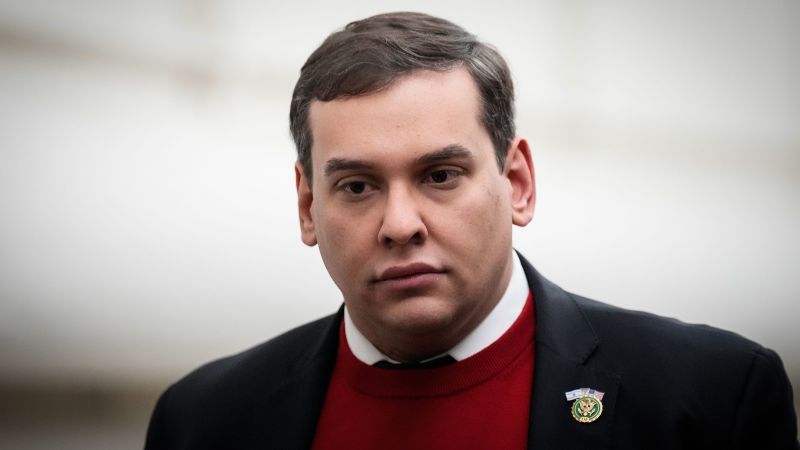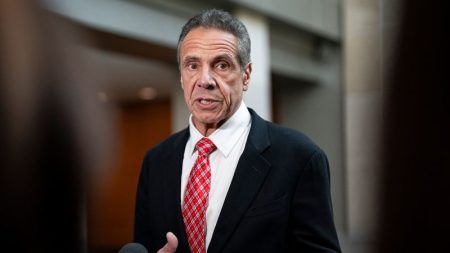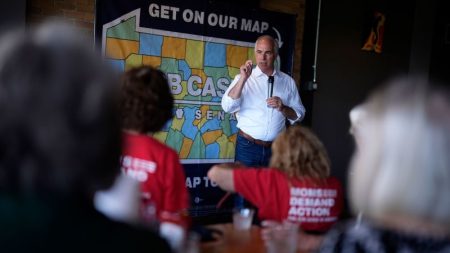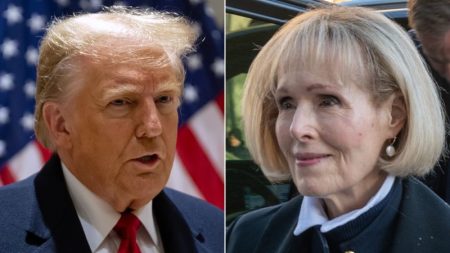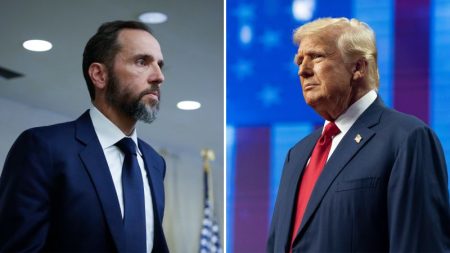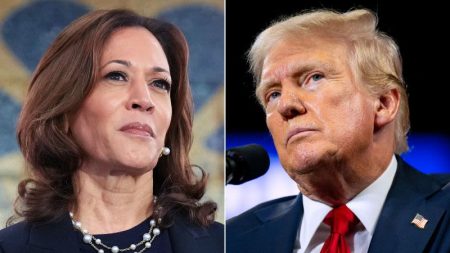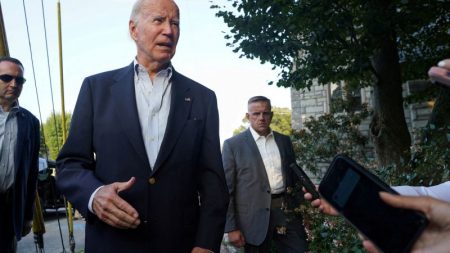The House Ethics Committee released a scathing report Thursday about embattled New York Rep. George Santos, finding evidence he broke federal laws, stole from his campaign and delivered a “constant series of lies” to voters and donors on his way to winning a US House seat.
The 56-page report into his troubled tenure immediately triggered fresh calls to expel the freshman Republican from Congress and prompted the often-defiant Santos to declare that he would not seek reelection next year.
The findings from an investigative subcommittee of the House Ethics Committee range from evidence that campaign funds were used to pay for Botox and leisure travel to signs that Santos was deeply involved in filing false reports to federal regulators that masked the true state of his finances and that of his campaign.
“Representative Santos sought to fraudulently exploit every aspect of his House candidacy for his own personal financial profit,” the report concluded.
The committee also concluded that sexual harassment claims brought against Santos by someone who was seeking employment in his congressional office could not substantiated.
But the panel referred its findings about his campaign finances and other activity to the US Justice Department, concluding Santos’ conduct was “beneath the dignity of the office” and has “brought severe discredit upon the House.”
Here’s a look at some of the key takeaways from the report:
Report describes use of campaign funds for personal travel and cosmetics
The report provided extensive evidence that Santos used campaign funds for lavish personal use.
Santos racked up significant travel expenses for flights, hotels, Ubers and meals that do not appear to have any political or campaign purpose.
While one witness told the ethics panel there were only two trips taken during the campaign to Washington, DC, and Florida, additional witnesses described Santos’ travel as much more frequent.
One witness said Santos traveled “once per month,” and another testified they were “worried about the look of the campaign spending all this money on … all these dinners and travel outside of the district.”
Another staffer who witnessed Santos use campaign funds for meals and Ubers described Santos as “a high roller,” but said they did not have concerns about the spending.
In December 2021, Santos put taxi and hotel charges from Las Vegas on the campaign credit card, even though that was a time when he told his campaign staff he was on his honeymoon and there were no campaign events on his calendar.
A Federal Election Commission report listed a July 7, 2022, $3,332.81 Airbnb expenditure as “Hotel stay,” when the campaign’s calendar revealed Santos was “off at [the] Hampton’s for the weekend.”
Santos also spent $2,281.52 at resorts in Atlantic City from July 23 to July 24, 2022, a day when his calendar revealed he had one event at 8pm on the 24th entitled “NRCC Candidate.”
One former Santos staffer told the Ethics panel he did not recall “any sort of fundraising or campaign things in Atlantic City,” but said Santos told him he enjoyed visiting casinos to play roulette, often with his husband.
Additionally, spa and cosmetic services did not appear to have a campaign purpose.
Examples in the report include:
• $1,400 at Virtual Skin Spa in Jericho, New York, in July 2022
• $225 at CityMD in Huntington, New York, on August 27, 2022
• $1,500 purchase on the campaign debit card in 2020 was made at Mirza Aesthetics, which was not reported to the FEC and was noted as “Botox” in expense spreadsheets
• $1,400 charge at Virtual Skin Spa was a campaign debit card purchase that was also described as “Botox” in the spreadsheets
• An unreported PayPal payment of $1,029.30 to an esthetician associated with a spa in Rhinebeck, New York.
• $4,127.80 purchase at Hermes
• Smaller purchases at Only Fans, Sephora, meals, and parking.
A vulnerability report commissioned by his campaign during the 2022 election cycle – and included in the ethics report released Thursday – chronicles his lies about his education and his employment history and details multiple eviction notices and civil judgments.
These reports, typically created to show what opposition research can be dug up on a candidate, runs some 137 pages long.
Topping the vulnerability report are Santos’ lies about his education – that he graduated with an MBA from New York University and a bachelor’s degree from Baruch College.
“The registrar offices at both institutions said there was no record of Santos earning any degree from either university,” the report said.
The report also detailed “at least three housing eviction lawsuits were filed against Santos and his family in Queens, New York” between 2014 and 2017, and notes that Santos has had “multiple civil judgments filed against him for owing thousands of dollars to creditors.”
One of the enduring questions about Santos’ campaign filings has been his claim that he provided six-figure personal loans in support of his congressional bids – given his modest means.
In its report, the committee concluded that there “is substantial evidence” that most of the nearly $800,000 that Santos reported making in personal loans to his campaign committee and to an aligned leadership PAC in the 2020 and 2022 election cycles “were not actually made or properly disclosed” to regulators at the Federal Election Commission, known as the FEC. (Santos ran unsuccessfully for Congress in 2020 before winning his Long Island seat last year.)
Additionally, the investigators found that Santos was improperly “reimbursed” with donors’ money for campaign loans he didn’t make.
The report also took aim at Santos’ repeated characterization of himself as the victim of a rogue campaign treasurer, saying he was “heavily involved in the day-to-day financial operations of his campaigns.”
“Representative Santos has login credentials to access the campaign’s bank accounts online, reviewed FEC reports, tracked money as it was coming and going out of the campaign, reviewed invoices and received weekly finance reports,” the report states.
In October, his former treasurer, Nancy Marks, admitted in court to conspiring with Santos to fill out federal documents with false claims and information as part of pleading guilty to one count of conspiracy to defraud the United States.
The House Ethics panel said there was not substantial evidence to support a sexual harassment allegation brought against Santos.
The claim that Santos may have engaged in sexual misconduct was brought by an individual seeking employment in Santos’ congressional office as a staff assistant, referred to in the report as witness 10.
Based on the investigation, the report reads “that there was not substantial reason to believe that Representative Santos sexually harassed or discriminated against Witness 10, a prospective employee.”
Witness 10 was asked to come to Santos’ congressional office on January 25, 2023, to meet the team. Witness 10 returned to the office on several occasions, but then was told to wait until Human Resources cleared his hire and he could be properly onboarded. On February 1, the offer was rescinded “due to the office’s concerns about then-pending felony wiretapping charges against him.”
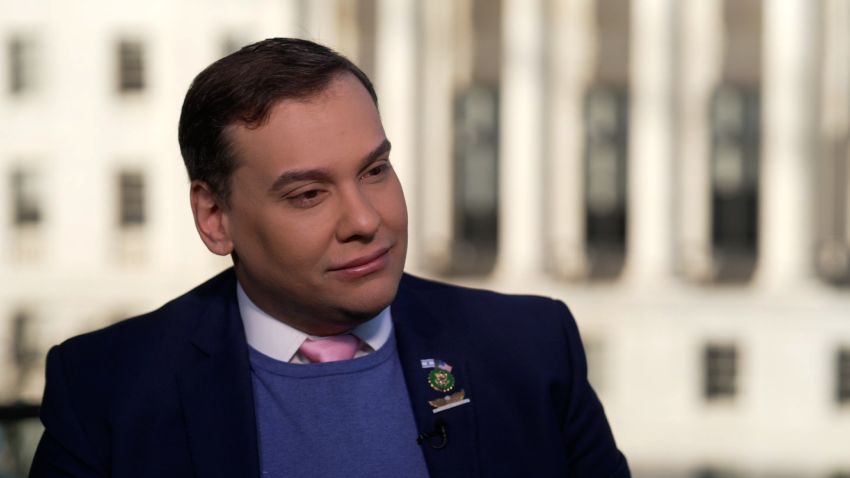
Here’s what we know about the House Ethics Committee report on Santos
Two days later, witness 10 filed a complaint with the House Ethics Committee alleging Santos “engaged in sexual misconduct towards him while they were alone in the Congressman’s office on January 25, 2023, ‘going over mail correspondence from constituents.’ ”
Investigators say in the report they were unable to substantiate this claim.
Testimony from other witnesses the panel interviewed contradicted witness 10’s claims about reviewing mail and being alone with Santos. Witness 11 told the panel that witness 10 was “always in the middle of the room around people, always supervised.”
Witness 8 testified: “If it’s not me that’s with the congressman at all times, it’s either the [legislative] director or the chief or the [communications] director[….] So there’s no opportunity for [him] to be alone with the congressman.”
Witness 5 told the committee that witness 10 “never went through the mail.” Witness 5 also said that they took the mail home with them and witness 10 “also corroborated Witness 5’s testimony that she took the mail home with her.”
Beyond that, the committee raised concerns about witness 10’s credibility. Witness 10 admitted to contacting the FBI with his allegation against Santos and asked to be paid by them for the information he had regarding Santos.
“I was aware that they paid confidential informants, and I was seeking compensation,” witness 10 told the committee.
The committee said it uncovered additional “uncharged and unlawful conduct” by Santos that go beyond the criminal allegations already pending against him, and would immediately refer these allegations to the Justice Department for further investigation.
He has pleaded not guilty to 23 federal crimes, including some matters that the panel looked into, like allegedly misusing campaign funds and lying on House financial disclosures.
House investigators said they amassed more than 170,000 pages of documents and testimony from “dozens of witnesses” as part of their own inquiry, and would send that to federal prosecutors.
But the report also indicates that there was some tension between the overlapping DOJ criminal probe and House ethics probe.
The ethics panel reached out to the Justice Department to deconflict their investigations, and top DOJ officials asked them in March to pause the ethics probe. But the subcommittee that handled the Santos matter, called the ISC, decided to move forward.
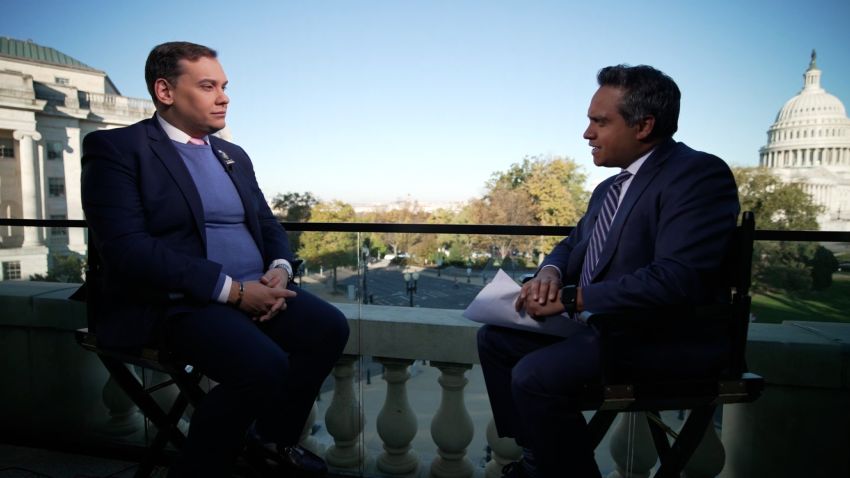
Hear what Santos’ plan is if he gets expelled from Congress
“Based on its constitutional and rule-based mandates, the unique circumstances of this case, and the ISC’s concern that fully deferring to DOJ until the conclusion of the criminal prosecution would effectively prevent the Committee from exercising any oversight of Representative Santos’ conduct, the ISC determined to conduct a review of the allegations while continuing to communicate with DOJ to mitigate potential interference,” the report said.
As part of that coordination to “mitigate potential interference,” the ethics panel temporarily delayed parts of its review and decided to “forgo certain steps,” including seeking interviews with 20 witnesses.
The House report says DOJ’s “deferral requests” prevented them from getting to the bottom of certain allegations.
Read the full article here
